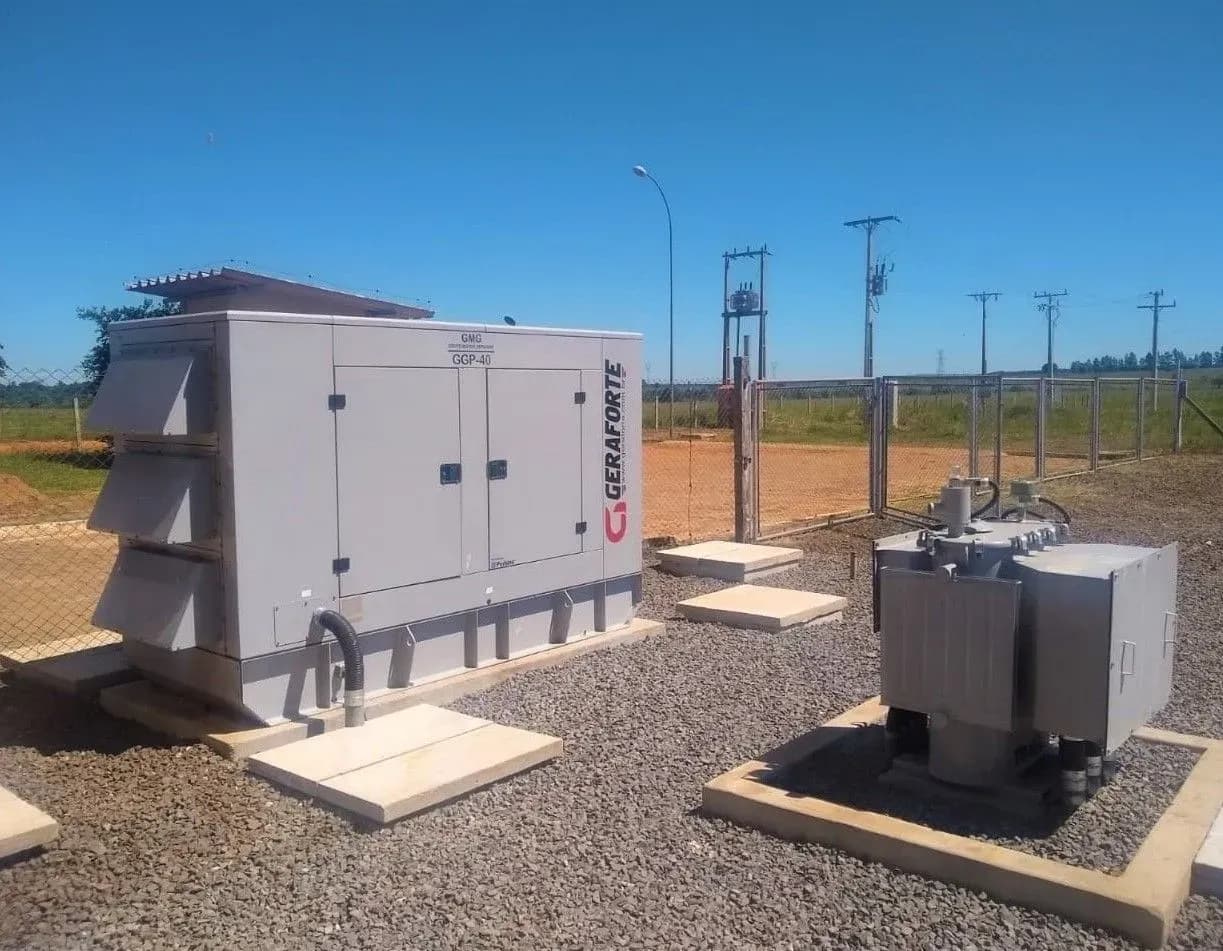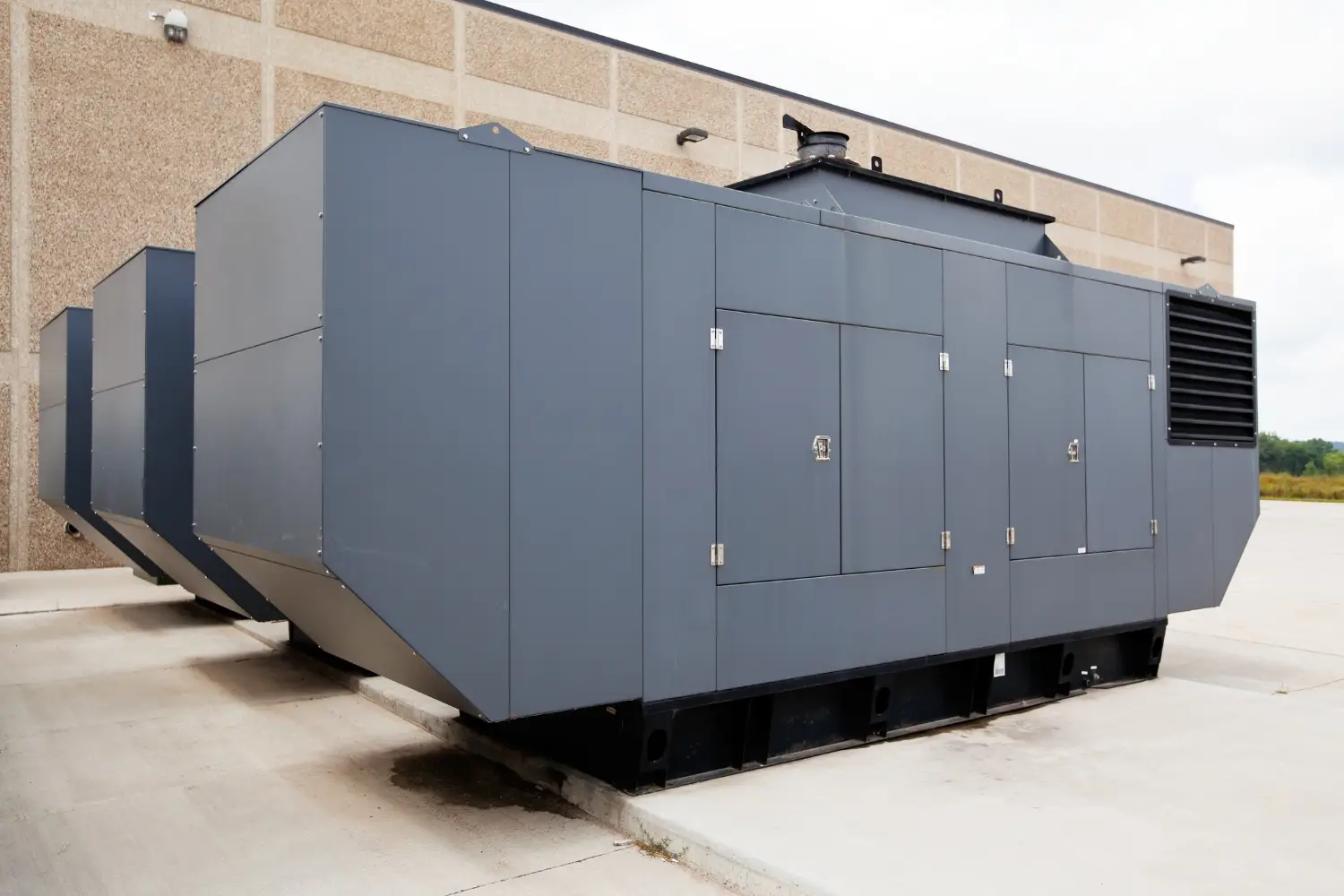Power Generator: How to Choose the Best Option for Your Company? Complete Guide
Understand your company's energy needs
Assessment of critical and total load
The first step in choosing the ideal generator is to perform a detailed survey of the electrical load to be supported in case of a public grid failure. It is essential to distinguish between the critical load (essential systems that cannot stop) and the total load (all equipment and operations).
Examples of critical loads
IT servers and data centers
Medical equipment in hospitals
Pumping systems in industries
Usage profile consideration
It is important to understand the consumption profile: will the generator be used only in emergencies (standby), as the main source (prime), or for continuous operation? Each profile requires different specifications in terms of durability, load capacity, and autonomy.
Types of power generators available
Diesel generators
Most commonly used in business applications due to their robustness, autonomy, and relatively low operating cost under heavy loads. Ideal for continuous or emergency use in industries, hospitals, agribusiness, mining, and large offices.
Natural gas generators
Suitable for areas with a continuous supply of piped gas. Offer cleaner and quieter operation, making them an excellent option for urban areas and business condominiums.
Quick comparison
Diesel: higher power and autonomy
Natural gas: cleaner and quieter operation
How to properly size a power generator
Required power calculation
Generator power should be sized considering the sum of critical loads plus a safety margin (usually 10% to 20%) to accommodate electric motor startup peaks.
Basic formula
Total power (kVA) = (Sum of all equipment power in kW) ÷ Power factor (usually 0.8)
Starting factors consideration
Motors, compressors, and HVAC systems have startup currents far above their nominal current, requiring generators with additional capacity to handle these peaks without overload.
Forecast of future growth
The acquisition plan must consider future load expansions due to company growth, avoiding undersizing in a few years.
Technical and operational criteria for selection
Type of generator start
Manual start: suitable only for non-critical uses
Automatic start (with ATS): mandatory for systems requiring fast, unattended response
Noise level
Silent generators or those with acoustic enclosures are recommended for businesses in urban or sensitive areas, such as hospitals and schools.
Practical example
Hospital generators must meet noise limits below 70 dB at a distance of 7 meters, according to regulatory recommendations.
Ease of maintenance
Choosing reputable brands with a wide technical support network facilitates access to spare parts and preventive maintenance, extending equipment lifespan.
Fuel efficiency
High-efficiency generators consume less fuel per kWh generated, reducing operating costs in the medium and long term.
Total cost of ownership (TCO) of the power generator
Initial cost vs. operational cost
Evaluating only the purchase price can be a mistake. One must consider:
Fuel consumption
Preventive and corrective maintenance costs
Licensing and installation costs
Lifespan and resale value
High-quality generators can last over 20 years, especially with proper maintenance. Established brands also retain higher resale value.
Use cases and practical examples
Generator for manufacturing industry
In a factory with automated production lines, a power outage can cause instant losses. A diesel standby generator with automatic start and 8-hour autonomy is essential for continuity.
Generator for technology offices
Technology companies, whose operations rely on continuous server availability, opt for diesel generators connected to UPS battery banks, ensuring seamless transition.
Generator for hospitals
Hospitals should install redundant generator systems (N+1) to ensure operation even in case of failure of one unit, prioritizing life support equipment and critical HVAC systems.
Smart generator choice ensures safety and continuity
Choosing the right power generator is a strategic decision that requires careful analysis of several technical, operational, and legal factors. Properly sizing the required power, ensuring ease of maintenance, and complying with current regulations are key steps to ensure business continuity and asset protection. Investing in a reliable power generator means investing in your business’s safety, productivity, and reputation.
Look for a specialized manufacturer like Geraforte, with over 16 years in the generator market. We have a team of engineers and specialists ready to assist you!
Discover our products.





